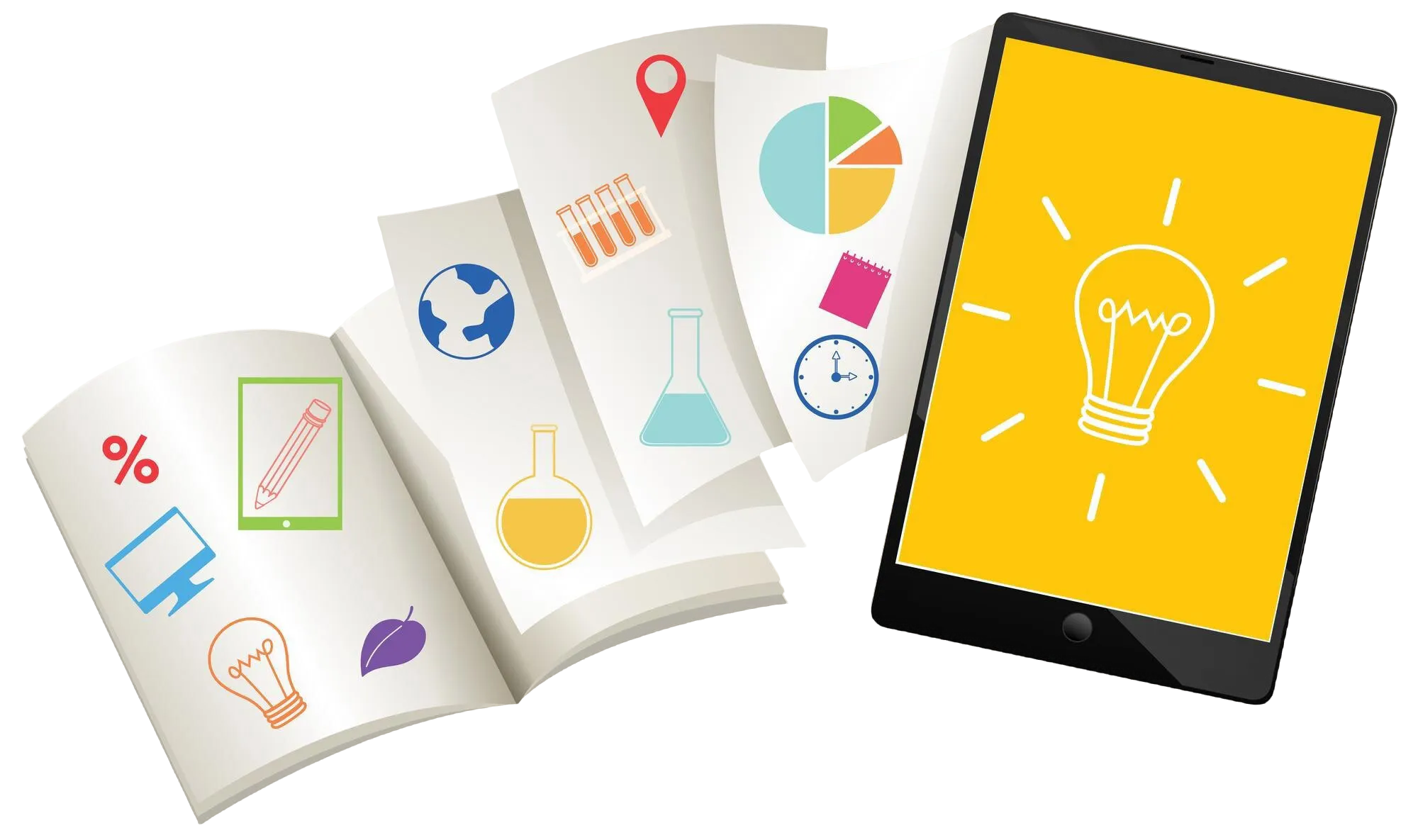From Blank Page to Bestseller: How AI Can Help You Write eBooks
Average Reading Time: 5min.
Table of Contents
- The Struggle of the Blank Page: A Common Dilemma
- Chapter 1: Introducing AI Writing Tools: A New Frontier
- Chapter 2: Turning Ideas into Reality: The Writing Process Facilitated by AI
- Chapter 3: Marketing Your eBook: AI-Driven Strategies for Success
- Chapter 4: Challenges and Considerations of Using AI in Writing
- Chapter 5: Success Stories: Authors Who Embraced AI
- Conclusion: Embracing the Future of Writing with AI
Have you ever stared at a blank page, your mind racing but your fingers glued to the keyboard? Imagine transforming that frustration into a well-crafted eBook, all thanks to the power of AI. This post will dive into the techniques and possibilities of using AI tools such as Scribrr for aspiring authors.
The Struggle of the Blank Page: A Common Dilemma
Every writer experiences the daunting feeling of facing a blank page. This struggle is often referred to as writers' block. But what exactly does that mean? Simply put, writer's block occurs when a writer is unable to produce new work or feels stuck. It can lead to endless hours of staring at a blank screen, which can be incredibly frustrating.
Understanding Writer's Block
Writer's block is more than just a lack of ideas. It can be an emotional and mental barrier. When writers sit down to create, they often feel an immense pressure to produce something perfect. This pressure can create overwhelming anxiety. After all, how can one write when all that fills their mind is blankness?
The Emotional Toll of Starting from Scratch:
- Fear of judgment
- Perfectionism
- Self-doubt
Each of these factors takes a toll. The internal dialogue turns negative. Writers might ask themselves questions like, "What if no one likes my work?" or "Am I really a writer if I can’t create?" The emotional weight often leads to a cycle of anxiety, making it harder to write. Indeed, statistics show that nearly 70% of writers face this dilemma regularly.
First-Person Anecdotes of Struggling Writers
Many famous authors have shared their experiences with writer's block. For instance, J.K. Rowling once admitted to feeling paralyzed by self-doubt in her early writing days. These narratives can remind aspiring writers that they are not alone. It may feel isolating, but every writer wrestles with similar challenges.
Statistics on Writing Anxiety
Did you know that 85% of people say they want to write a book? Yet, the fear of the blank page stunts their creativity. The struggle is common, as reinforced by Stephen King’s quote:
"The scariest moment is always just before you start."
Tips to Overcome Mental Barriers
To combat these mental barriers, one can try:
- Setting small, achievable goals.
- Writing free form for a set amount of time.
- Engaging in brainstorming sessions with peers.
- Taking breaks and stepping away from the work.
Overall, understanding that writer's block is a normal part of the writing process can alleviate some pressure. Recognizing it is the first step to overcoming it. After all, every word written counts towards eventual progress.
Introducing AI Writing Tools: A New Frontier
What is Scribrr and How Does It Assist Writers?
Scribrr is an innovative AI-powered writing tool designed specifically for eBook authors. It helps streamline the writing process, making it quicker and easier. But how exactly does it assist writers?
- Idea Generation: Scribrr can provide suggestions and brainstorming assistance.
- Editing Help: It offers grammar and style checks to enhance clarity.
- Content Structuring: The tool aids in organizing thoughts and ideas into coherent sections.
Overview of AI Tools Available for eBook Authors
There are several AI writing tools available that cater to eBook authors. From content generators to editing software, these tools offer various functions:
- Grammar Checkers: Tools like Grammarly help correct grammar while providing style suggestions.
- Content Generators: Programs like Jasper can create text based on prompts.
- Formatting Tools: These assist in structuring eBooks according to publishing standards.
Benefits of AI in Content Creation
AI-driven tools offer many advantages for authors. One significant benefit is the time savings:
- Scribrr can help reduce writing time by up to 40%.
- Relying on AI fosters increased creativity and fresh perspectives.
- AI can enhance writing confidence; 85% of users reported positive results in this area.
Comparison to Traditional Writing Methods
Compared to traditional writing methods, AI tools provide a clear edge.
- Faster Output: Unlike conventional methods, AI speeds up the process significantly.
- Less Stress: Writers can focus more on creativity rather than the mechanics of writing.
- Accessibility: Many writers, including beginners, find AI tools less intimidating than traditional approaches.
User Testimonials from Scribrr Clients
Users have positively embraced Scribrr. One anonymous user stated,
"Scribrr transformed my writing process; I never thought I could finish my eBook so quickly."
This sentiment is echoed by many satisfied authors.
Ultimately, AI tools like Scribrr are reshaping the writing landscape. They appeal to both novice and seasoned authors alike, revolutionizing how content is created and experienced.
Turning Ideas into Reality: The Writing Process Facilitated by AI
In today's digital age, creativity marries technology. This partnership can transform ideas into a structured piece of writing. With AI tools, writers can enhance their processes in several key areas. Let's explore how AI is helping writers bring their thoughts to life.
1. Brainstorming Ideas with AI Assistance
Generating ideas can be a challenging task. Writers often find themselves staring at a blank screen. This is where AI can step in. AI tools can suggest topics, themes, or angles based on trends and popular content. By asking the right questions, these tools can spark creativity. For example, using a tool like Scribrr, a writer might input a few keywords and receive a list of potential book ideas. It’s like having a brainstorming buddy who never runs out of suggestions!
2. Creating Outlines Effortlessly
Once ideas are flowing, organizing them is crucial. An outline serves as a roadmap for the writing process. Many writers struggle with this part. However, AI can simplify it. Writers can input their main points, and AI can arrange them logically. This results in a clear structure for the eBook. Imagine needing to plot a novel; the AI can assist by categorizing chapters and key themes. This leaves the writer more time to focus on the actual content.
3. Drafting and Revising with Feedback from AI
Writing is just the beginning. Often, the first draft needs revisions. This is where AI shines again. Writers can receive immediate feedback on their drafts. AI reviews the text for clarity, coherence, and flow. Offering suggestions for improvement helps writers refine their work. It's similar to having a coach for a sports team – providing guidance to improve performance.
4. Utilizing AI for Editing and Polishing Content
The final touches are as important as the first words. Editing can determine the difference between a good piece and a great one. Using AI, writers can efficiently identify grammatical errors, awkward phrasing, and even stylistic inconsistencies. This process can be compared to polishing a gemstone. AI helps ensure the final product shines bright and is free of distractions.
“AI is not here to replace writers; it's here to enhance the writing journey.” — AI Expert
By leveraging AI tools throughout the writing process, authors can convert their imagination into structured content more efficiently. Whether brainstorming, outlining, drafting, or editing, AI offers a plethora of assistance that can genuinely enhance a writer's experience.
Marketing Your eBook: AI-Driven Strategies for Success
Understanding Your Target Audience through AI Analysis
To effectively market an eBook, knowing the audience is crucial. AI tools can analyze data from various sources. They help identify trends and preferences among specific groups. For instance, does a certain demographic prefer mystery novels over romance? Understanding this can tailor marketing strategies.
Imagine trying to sell ice cream in winter. Seems counterproductive, right? Similarly, marketing an eBook without understanding the audience is like shooting in the dark. With AI, authors can refine their targeting, ensuring their message reaches the right people.
Leveraging Social Media Platforms for Visibility
Social media is a powerful tool for any author. Through AI, authors can evaluate which platforms generate the most engagement. Whether it's Instagram, Twitter, or Facebook, each platform has its strengths.
- Use engaging visuals: AI can help create stunning graphics.
- Target ads effectively: Tailor ads based on user behavior analysis.
- Engage with readers: Utilize AI chatbots for instant communication.
Analytics show a significant increase in engagement when using AI-driven campaigns. This can translate to word-of-mouth promotions, making social media a valuable asset.
Creating Compelling Cover Designs with AI Tools
First impressions matter. A visually appealing cover can entice potential readers. Many AI tools offer design templates, enabling authors to create eye-catching covers.
With just a few clicks, any author can generate multiple cover designs. This saves time and resources while providing options that attract their target audience.
Gathering Insights for Optimal Pricing and Distribution Strategy
Setting the right price for an eBook is vital for success. AI can analyze past sales, current market trends, and competition to suggest pricing strategies. Authors no longer have to guess. They can rely on concrete data.
Additionally, determining the best distribution channels is essential. Should they opt for exclusive releases or broad distribution? AI can provide insights based on audience preferences. Over 65% of authors report better sales analytics through AI tools, proving its value.
"The future of marketing lies in the fusion of human creativity and AI intelligence." — Marketing Guru
AI now plays a vital role not just in writing but also in effectively marketing eBooks to wider audiences. The fusion of these strategies enhances visibility and sales potential. In fact, AI-driven marketing can boost eBook sales by 30%. This staggering statistic highlights why embracing technology is essential for modern authors.
Challenges and Considerations of Using AI in Writing
As writers increasingly turn to AI tools, several important challenges and considerations arise. These issues are crucial for anyone wanting to incorporate AI into their writing process effectively.
1. Ethical Considerations of AI Content Generation
One of the primary challenges involves ethics. When AI generates content, questions about originality and ownership arise. Writers may wonder: Who owns the work? Is it ethical to present AI-generated content as one’s own? It’s important to consider these issues seriously.
- Creators should clearly indicate AI assistance.
- Review any AI-generated work for inaccuracies or biases.
2. Potential Pitfalls to Avoid
A major pitfall to avoid is over-reliance on AI. Writers might think that sophisticated tools can do all the heavy lifting. This is a common misconception—AI cannot replace human creativity. They might say, “AI is a tool; it should never overshadow the unique voice of a writer.” — Literary Authority. No doubt, AI can enhance writing, but it must not dominate.
3. The Balance Between AI Assistance and Personal Voice
Striking a balance between AI assistance and maintaining a personal voice is vital. Writers bring their unique perspectives and emotions to their work. AI can support the writing process but incorporating personal insights ensures authenticity. Without this, content might be technically sound but lacks genuine connection.
4. Security Concerns with AI Platforms
The security of personal data poses another challenge. Many AI platforms require writers to input drafts or ideas. This raises questions about data privacy and the risk involved. Are these AI tools storing data securely? Writers should verify the security measures of any platform before use.
In light of these challenges, it remains vital for writers to navigate the landscape of AI thoughtfully. By addressing ethical concerns, avoiding pitfalls, balancing their unique voice, and ensuring data security, they can harness AI effectively while remaining authentic in their craft.
Success Stories: Authors Who Embraced AI
Many writers today are discovering the advantages of using AI in their creative process. This technology has proved to be a valuable companion, enabling authors to enhance their work. Below, we delve into case studies, interview real authors, and examine the impact of AI on writing styles.
Case Studies of Successful eBooks
Numerous authors have harnessed AI effectively. One notable example is an author who, after struggling for years, turned to AI-powered tools. With the assistance of AI, their eBook turned into a bestseller.
- Before using AI, their completion rate hovered around 30%.
- After implementation, they recorded a remarkable 50% increase in completion rates.
This transition didn't merely boost numbers. It profoundly improved the quality of the writing itself. AI helped identify inconsistencies and suggested improvements, leading to a polished final product.
Interviews with Authors
Real-life testimonials amplify the benefits of using AI. For instance, one successful author explained,
"Using AI was a game-changer; my book became a bestseller thanks to the efficiency I gained."
This sentiment echoes among many authors leveraging these tools in their writing.
Through interviews, various authors shared their journeys, indicating a common theme: AI enhances creativity while minimizing potential roadblocks. They reported feeling more empowered, ultimately leading to greater output and engagement.
Before-and-After Comparisons of Writing Styles
Exploring the transformation of writing styles offers enlightening insights. Authors who utilized AI observed distinct changes in their approach. The integration of AI brought clarity and coherence to their writing. This evolution was noticeable in the following ways:
- Consistency: AI tools assisted in maintaining a uniform tone throughout their work.
- Engagement: An impressive 70% of authors reported improved reader engagement after embracing AI.
- Editing: Edit suggestions from AI often led to more dynamic narratives.
These before-and-after comparisons reveal not only stylistic shifts but also the growth experienced by authors. AI is not merely a tool; it has become an essential collaborator on their writing journeys.
In conclusion, personal accounts from authors highlight AI's transformative power. It streamlines the writing process, enhances readability, and empowers creative expression. Writers who embrace this technology are not just surviving; they are thriving in today’s competitive landscape.
Conclusion: Embracing the Future of Writing with AI
As we bring our exploration of AI's role in eBook writing to a close, it’s vital to reflect on the lessons learned. AI tools like those offered at Scribrr have demonstrated their ability to facilitate various stages in the writing process. From brainstorming ideas to generating drafts and even editing, AI can significantly streamline a writer's workflow.
In today’s fast-paced literary world, technology and creativity can coexist harmoniously. Writers today face immense possibilities. Embracing AI might just be the key to unlocking their full potential. The integration of AI does not replace human creativity; instead, it enhances it. Think of AI as a co-pilot, helping steer the direction of a story while letting the writer take full control of the journey. Which author wouldn’t want an ally standing ready to catch mistakes and suggest improvements?
Reflecting on the experiences shared: productivity increases, stress decreases, and inspiration flows more freely when writers leverage advanced tools. This technological assistance allows writers to focus on what they do best—crafting compelling narratives that resonate with readers.
Encouragement for writers and aspiring authors to explore these AI tools cannot be overstated. The landscape of writing and publishing is evolving. To thrive in this environment, they must adapt. Exploring platforms like Scribrr offers writers a chance to experiment with AI features firsthand. The tools are not just for tech-savvy individuals; they are designed to be user-friendly and accessible to everyone. Whether one is a seasoned author or new to the writing game, AI can provide support tailored to individual needs.
In summary, the future of writing with AI is a promising horizon. By embracing these technologies, writers can enhance their creative processes and produce impactful eBooks. With the right tools at their disposal, the only limit is their imagination.
For more information on Scribrr, you can check out the following URL:
- Website: https://scribrr.cc
- JV Website: https://scribrr.cc/jv
- Buy Access: Scribrr Monthly, Yearly or One-Time
P.S. Don't forget to follow us on social media, the community, the website and the - - YouTube channel for even more inspiration and updates!
- Website: https://thereviewshed.cc
- Website: https://van-santen-enterprises.com
- Community: https://community.scribrr.cc
- Marketing Courses: https://thetraininghub.cc
- The Store: https://van-santen-enterprises.cc
- YouTube Channel: @VanSantenEnterprises
To Learn more about "Digital Marketing" or to stay informed, subscribe to the free newsletter or community.
.#Scribrr, #EBookCreation, #ContentCreation, #PublishEBooks, #AIWritingTools, #Sribrr.CC
TL;DR: Utilizing AI tools can revolutionize the way we write and publish eBooks, making the daunting task of writing accessible and manageable for everyone.








